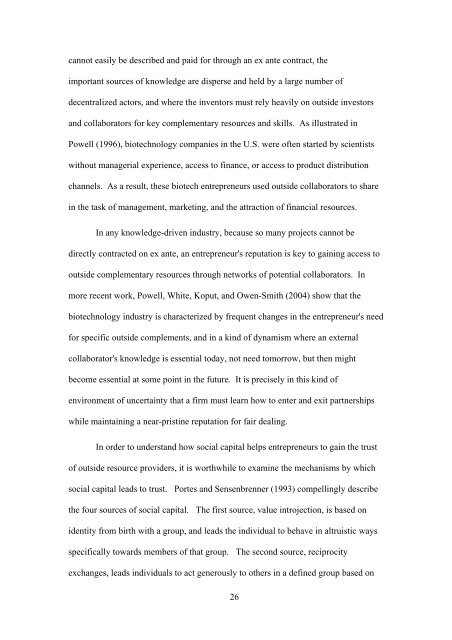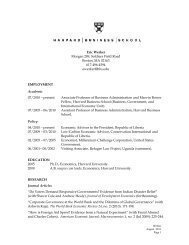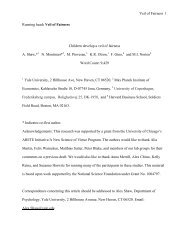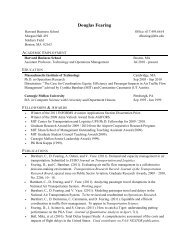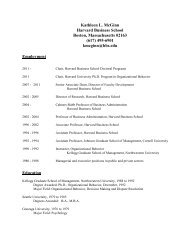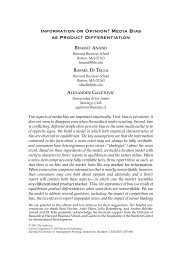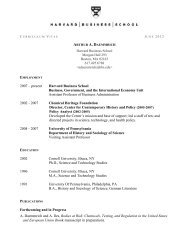Social Dimensions of Entrepreneurship. - People. hbs .edu ...
Social Dimensions of Entrepreneurship. - People. hbs .edu ...
Social Dimensions of Entrepreneurship. - People. hbs .edu ...
Create successful ePaper yourself
Turn your PDF publications into a flip-book with our unique Google optimized e-Paper software.
cannot easily be described and paid for through an ex ante contract, the<br />
important sources <strong>of</strong> knowledge are disperse and held by a large number <strong>of</strong><br />
decentralized actors, and where the inventors must rely heavily on outside investors<br />
and collaborators for key complementary resources and skills. As illustrated in<br />
Powell (1996), biotechnology companies in the U.S. were <strong>of</strong>ten started by scientists<br />
without managerial experience, access to finance, or access to product distribution<br />
channels. As a result, these biotech entrepreneurs used outside collaborators to share<br />
in the task <strong>of</strong> management, marketing, and the attraction <strong>of</strong> financial resources.<br />
In any knowledge-driven industry, because so many projects cannot be<br />
directly contracted on ex ante, an entrepreneur's reputation is key to gaining access to<br />
outside complementary resources through networks <strong>of</strong> potential collaborators. In<br />
more recent work, Powell, White, Koput, and Owen-Smith (2004) show that the<br />
biotechnology industry is characterized by frequent changes in the entrepreneur's need<br />
for specific outside complements, and in a kind <strong>of</strong> dynamism where an external<br />
collaborator's knowledge is essential today, not need tomorrow, but then might<br />
become essential at some point in the future. It is precisely in this kind <strong>of</strong><br />
environment <strong>of</strong> uncertainty that a firm must learn how to enter and exit partnerships<br />
while maintaining a near-pristine reputation for fair dealing.<br />
In order to understand how social capital helps entrepreneurs to gain the trust<br />
<strong>of</strong> outside resource providers, it is worthwhile to examine the mechanisms by which<br />
social capital leads to trust. Portes and Sensenbrenner (1993) compellingly describe<br />
the four sources <strong>of</strong> social capital. The first source, value introjection, is based on<br />
identity from birth with a group, and leads the individual to behave in altruistic ways<br />
specifically towards members <strong>of</strong> that group. The second source, reciprocity<br />
exchanges, leads individuals to act generously to others in a defined group based on<br />
26


